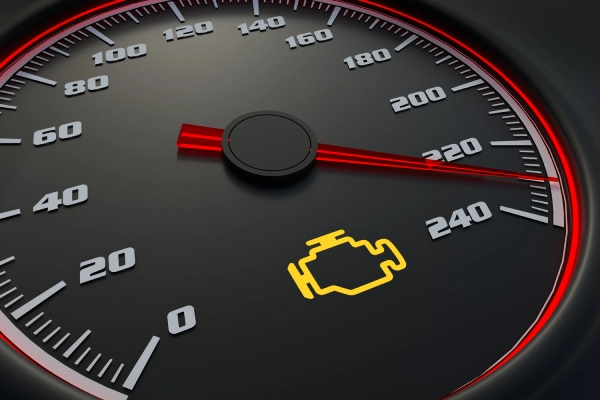Common reasons for the check engine light to come on
Common reasons for the check engine light to come on include both minor issues and major mechanical faults.
The check engine light is one of the most misunderstood, yet critical, alerts a driver can encounter.
It might be something as simple as a loose gas cap, or something much more serious, like engine misfires or catalytic converter failure.
If you’re driving in Calgary or elsewhere in Canada and suddenly see that small amber light appear, don’t panic—but take it seriously and act quickly.
This warning light is part of your car’s onboard diagnostics system. When something goes wrong, your car stores a diagnostic trouble code (DTC) and illuminates the light.
Knowing the common reasons for the check engine light to come on and how to respond can help you avoid unnecessary panic, costly repairs, or even dangerous breakdowns.
What is the first thing to check when the check engine light comes on?
The most overlooked yet common culprit is the gas cap. It’s the first thing you should inspect.
If it’s not tightened properly or the seal is damaged, fuel vapour can escape and trigger a fault code in your emissions system. That makes it one of the simplest common reasons for the check engine light to come on.
Tighten the cap until it clicks, then drive your car for a couple of trips to see if the light turns off. If it stays on, further investigation is needed.
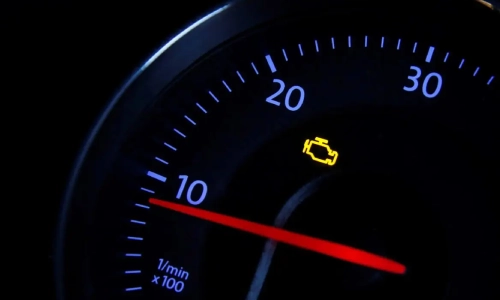
Contact us for engine diagnostics and repair services
Common reasons for the check engine light to come on while driving
Faulty Oxygen Sensor
Your vehicle uses oxygen sensors to monitor how efficiently the engine burns fuel. When one fails, the engine may run rich (too much fuel) or lean (too little fuel). This not only increases emissions but also decreases fuel economy.
If left unresolved, a faulty sensor can damage the catalytic converter, multiplying repair costs.
Worn Spark Plugs or Ignition Coils
Spark plugs and ignition coils are essential for starting your engine and keeping it running smoothly. When they wear out, your engine might misfire, leading to rough idling, hesitation, and decreased performance.
It’s a major reason why your check engine light is on but the car runs fine – at least for now. Ignoring it too long can lead to more severe engine issues.
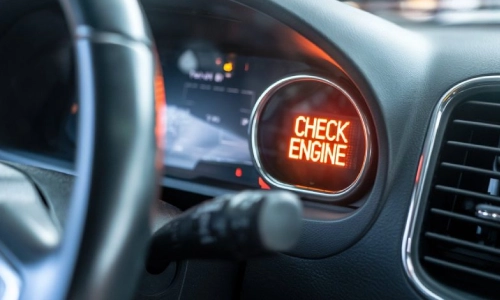
Catalytic Converter Failure
The catalytic converter reduces the harmful pollutants that exit your exhaust. A clogged or failing converter affects performance, increases emissions, and may even prevent your car from starting.
This issue is one of the more expensive common reasons for the check engine light to come on, so early detection is crucial.
Mass Airflow Sensor Issues
The mass airflow (MAF) sensor controls how much air enters your engine to mix with fuel.
A faulty sensor can cause your engine to stall, hesitate, or even prevent it from starting. You may also notice poor fuel economy and sluggish acceleration.
EVAP System Leaks
The evaporative emissions (EVAP) system captures gasoline vapours and routes them back to the engine to burn.
A loose hose or a cracked seal in this system can trigger a diagnostic code. Often, when the check engine light is on but the car runs fine, an EVAP leak is to blame.
Exhaust Gas Recirculation (EGR) Valve Malfunction
The EGR valve helps control emissions by recirculating a portion of the exhaust back into the engine cylinders. A clogged or malfunctioning EGR valve can lead to rough idle, knocking, or stalling.
What to do when check engine light comes on
So, what should you actually do when this light shows up?
- Inspect the gas cap. Remove and reseal it tightly.
- Watch for other signs. Are there noises, smells, or a decrease in power?
- Scan the code. A basic OBD-II scanner or a visit to a local mechanic can retrieve the code.
- Check fluid levels. Low oil or coolant can indirectly affect engine sensors.
- Visit a professional. Especially if the light is flashing, which usually indicates a serious issue like an engine misfire.
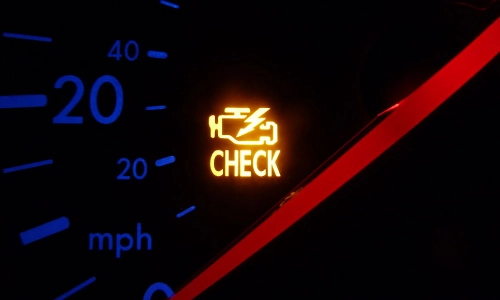
Knowing what to do when the check engine light comes on gives you an edge in preventing small issues from becoming big, expensive ones.
Check engine light on but car runs fine: Should you worry?
It’s a common scenario—you’re driving smoothly, but the light is on. So, should you be concerned?
Absolutely. Just because everything feels fine doesn’t mean your car is operating at full health. The engine’s control unit may have detected an emissions fault, minor sensor issue, or small air leak.
These may not affect drivability today, but they can become severe over time. Ignoring it could reduce fuel efficiency or damage critical components.
So, even if the check engine light is on but car runs fine, don’t ignore it. A small investment in diagnostics now could save you from a major repair bill later.
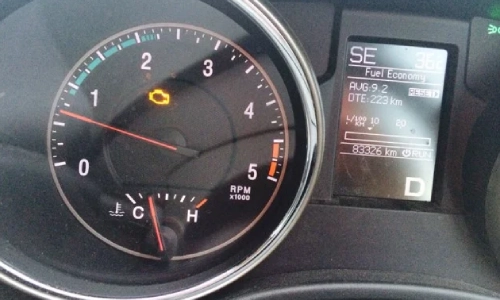
Other common reasons for the check engine light to come on
Here are more common reasons for the check engine light to come on that might not be as widely known:
- Faulty thermostat: Can cause the engine to run too hot or too cold.
- Vacuum leaks: These can cause high or rough idling. Listen for hissing sounds under the hood.
- Dead or weak battery: Low voltage can interfere with electronic sensors.
- Transmission sensor faults: May not shift properly, especially in automatic vehicles.
- Bad fuel injectors: Can cause misfires or fuel leaks.
- Aftermarket electronics: Poor installations can confuse the engine’s control unit.
Each of these could be the root of why you’re experiencing that dashboard alert.
Get in touch with us for vehicle brake service and replacement
Preventing the check engine light from turning on
While some issues are unavoidable, many can be prevented through regular maintenance:
- Change your spark plugs and wires on schedule
- Replace air filters regularly
- Keep your gas cap in good condition
- Use high-quality fuel
- Stay current on oil changes and fluid top-ups
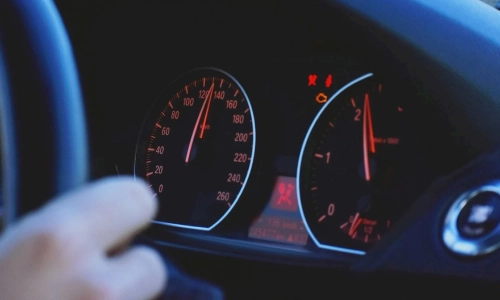
Preventative care is your best bet against unexpected warnings.
Stay calm and get it checked
Don’t let the light stress you out. Yes, there are many common reasons for the check engine light to come on, but identifying the issue early can save you both time and money. Acting quickly can prevent further engine damage and keep your car running efficiently.
In Calgary, you can rely on raptorsauto for expert diagnostics and trustworthy repair. Our trained technicians use cutting-edge equipment to pinpoint the problem and offer you the right solution the first time.
Conclusion
The check engine light is your car’s way of telling you something needs attention. It could be something simple like a loose gas cap or a much more serious problem like a failed catalytic converter.
Either way, knowing the common reasons for the check engine light to come on puts you in control.
If you notice this light, take action. Even if the car appears to run fine, unresolved issues can add up.
For those in Calgary looking for honest, thorough service, raptorsauto is here to help. We’ll diagnose, explain, and fix the problem—so you can get back on the road with confidence.

